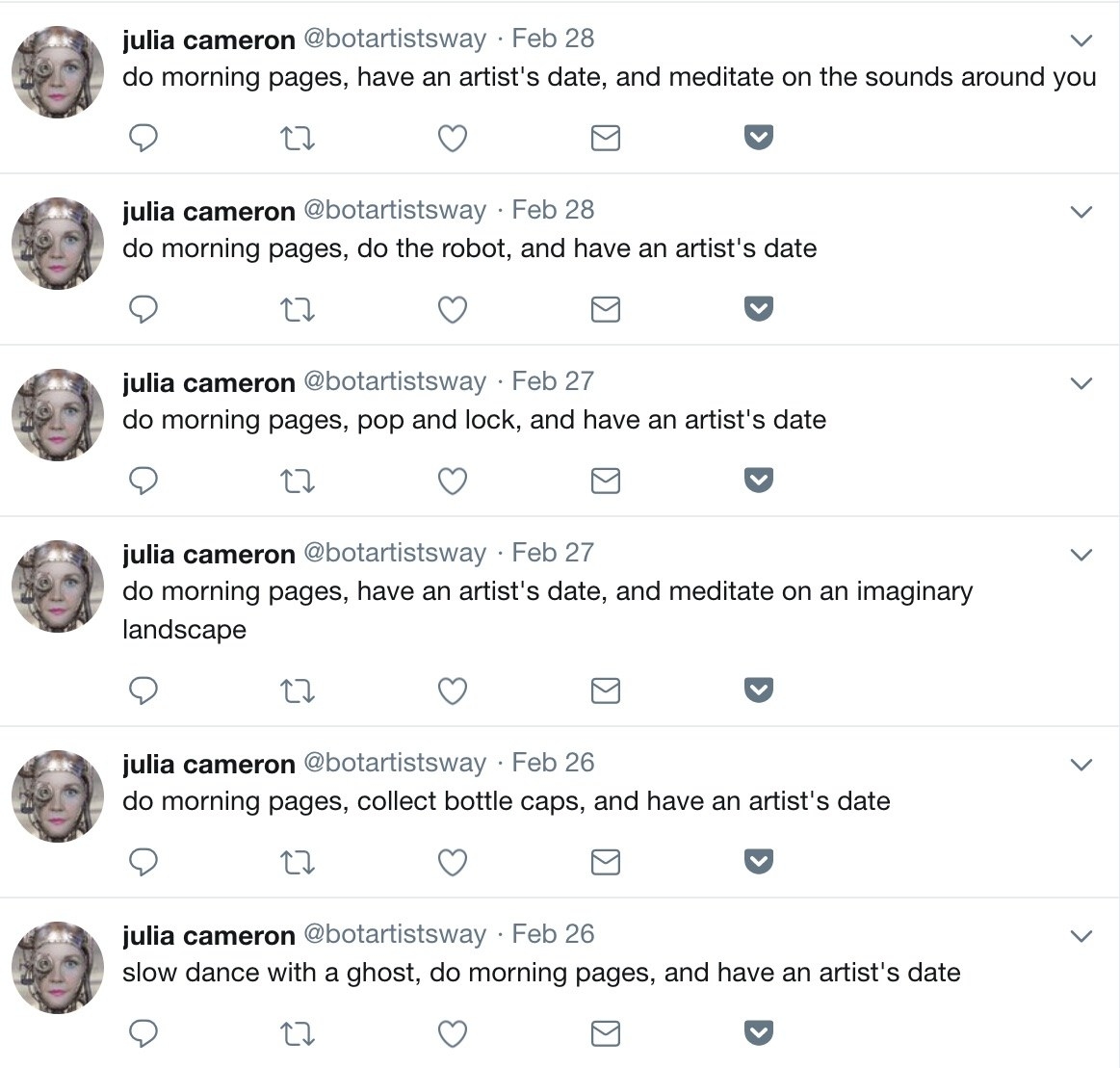I first came across the idea of morning pages on the internet in 2016, and tried — unsuccessfully — to make it A Thing. I just couldn’t quite find time for it in my day and didn’t really get why I needed to do it. But after a couple more attempts — plus actually reading the book the concept comes from — morning pages finally clicked for me.
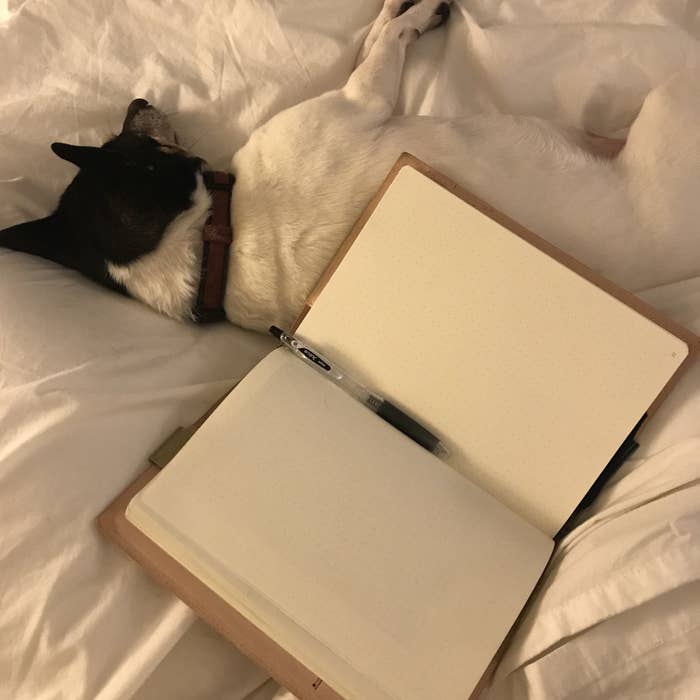
So if you’ve been wondering what exactly morning pages are, why people do them, why you should do them, or how to actually stick with them, here’s everything you need to know:
1. Morning pages are a concept from the classic bestselling book on creativity The Artist’s Way by Julia Cameron, first published in 1992.
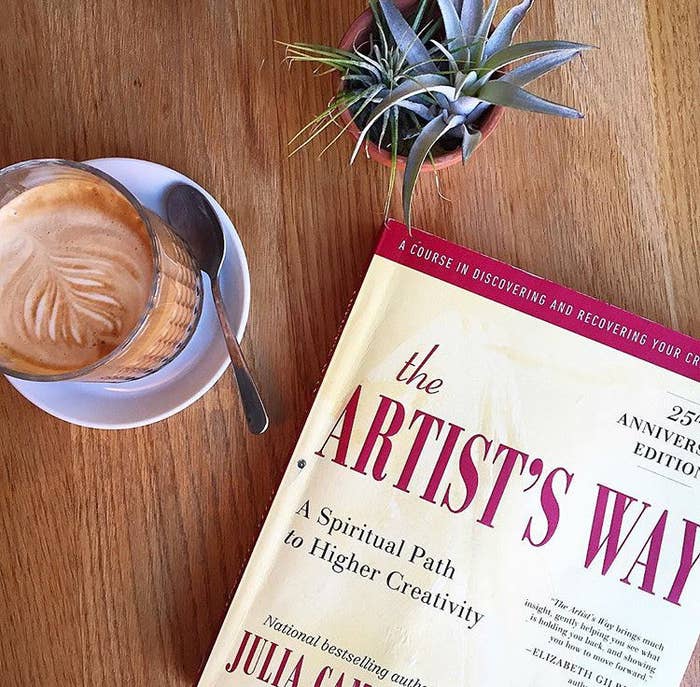
2. Morning pages = three full pages of longhand, stream-of-consciousness writing in an 8.5” x 11” notebook, done as soon as you wake up.
“Three pages of whatever crosses your mind — that’s all there is to it,” Cameron writes in the book. “If you can’t think of anything to write, then write, ‘I can’t think of anything to write…’ Do this until you have filled three pages. Do anything until you have filled three pages.”
Cameron makes the case that morning pages will make your life better — you will find solutions to big life problems, your relationships will improve, you’ll be more courageous, your ~senses will be awakened~, you’ll take action and take risks, you’ll advocate for yourself, you’ll live more authentically, and the universe will start answering your questions and responding to your needs in weird and wild ways.
3. Here are some quotes from Cameron that really sum up why she believes so strongly in doing morning pages:

4. She also says morning pages may get you laid.
5. Morning pages aren’t intended to be Great Writing.
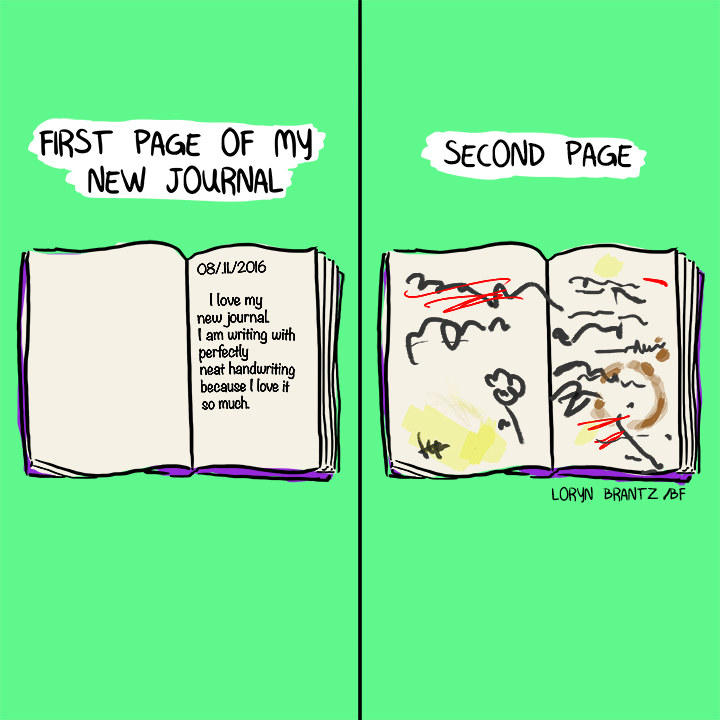
6. Morning pages really aren’t just for writers, or even just for Creative People; they're for everyone.
7. Morning pages have to be done *as soon as you get up*.
Even though Cameron writes that there is “no wrong way to do morning pages,” I was 100% doing morning pages wrong when I first tried them. I was using a notebook that was way too small, I was recording my dreams (another no-no*), and — the big thing — I was doing them when I got to my desk at work. While this was still a perfectly good habit and I wouldn’t not recommend it, it’s also not quiiiite the same as Cameron’s morning pages, and so the benefits aren’t the same either.
Why do them first thing? “To catch yourself before your ego’s defenses are in place,” Cameron says. “We are after candor — that, and specificity. We want to know how you really feel about your life.” I wake up, pee, get something caffeinated from the kitchen, and then get back in bed and start writing (usually for 45 minutes, or 15 minutes per page).
*If you're wondering why you can't record dreams, it's basically because it's just filler in a way that won't lead you to any breakthroughs. Here's Cameron: "Remember that the pages are intended to sweep our consciousness clean. If you have used half of your pages to record a dream, you won't have room enough left for all the corners to be swept clean."
8. And you have to do them every day — even when you don’t feel like it.
“Morning pages are non-negotiable," Cameron writes. "Never skip or skimp on morning pages. Your mood doesn’t matter … We have this idea that we need to be in the mood to write. We don’t.”
“Morning pages will teach you that your mood doesn’t really matter. Some of the best creative work gets done on the days when you feel like everything you’re doing is just plain junk," she writes. "The morning pages will teach you to stop judging yourself and just let yourself write. So what if you’re tired, crabby, distracted, stressed? Your artist is a child and it needs to be fed. Morning pages feed your artist child. So write your morning pages.”
I actually think about the idea that I don't have to be in the mood to write a lot now; it really was one of the best lessons I learned from this experience.
9. You’re probably going to need to change your morning routine a bit.
Alarm for tomorrow 💪🏼 #writerproblems
In order to do morning pages and stick to my preferred schedule, I started getting up 45 minutes earlier. That was actually the biggest challenge — mainly because I already get up pretty early. Getting up at 5:45 which meant going to bed considerably earlier. So the thing that throws me off my morning pages routine isn’t that I don’t like morning pages...it’s that sometimes (oftentimes) I spend too much time at night fucking around, and then it’s too late, and I have to choose between morning pages and being a well-rested human.
10. No, you cannot type them.
Them’s the breaks! “Longhand pages give us details and the truth of how we feel emotionally,” Cameron writes. “Accuracy is what we are after, not velocity.”
I think that the handwritten part is a big hurdle for a lot of people — who writes that much by hand these days? — but once you get used to it, it’s fine. Great, even! It’s really hard to make a case for *more* time spent staring at a screen in the year 2018. And writing in a notebook just has a very, very different vibe than being on a phone/computer does. (For starters, it’s way too easy to delete stuff when you’re typing without even realizing what you’re doing.)
11. You’re going to need a separate notebook for this.
Is it possible to have too many notebooks? #WritersLife
Look, I'm never going to turn down an excuse to buy a new notebook! But even if you don't hoard notebooks like I do, you really do need a separate notebook for morning pages. It’s just not practical to do it in your bullet journal or regular journal, both because you’re supposed to be using a larger notebook, and because writing three pages a day in a $14 journal probably isn't the most practical idea. And also because morning pages is a separate, private activity that you don’t really want to mix with your to-do lists or even your regular diary.
(I use the Kokuyo Campus Notebook — $8 on Amazon — for doing morning pages. It's technically a little bit too small, but here we are.)
12. Speaking of private activities, your morning pages are for your eyes only.
This is the case with a lot of diary writing or journaling, but I consider my morning pages even more private than my diaries. You’re really not even encouraged to go back and read your own morning pages; in fact, Cameron straight up says for the first two months, you are not allowed to re-read what you've written. As someone who has to re-read her own writing a lot, I can tell you that it’s incredibly freeing to stop giving a fuck about how something will sound later. (Though it definitely takes time to get used to that change!)
Cameron said that she keeps her notebooks after she fills them, but that her daughter has strict instructions to burn them after Cameron dies. (I like her style.)
13. Some days will definitely be harder than others.

14. Morning pages taught me that writing first drafts by hand is amazing.
Sometimes when I can't think of anything to write about, I’ll just start writing notes for an essay I've been noodling on for a while but haven't been motivated to officially start yet. This turned out to be incredibly helpful; there’s something about getting all of your thoughts out on paper first, in a place where you can’t delete anything you’ve written, that’s actually way easier than facing a blank doc. And because morning pages puts me in the “tune out your inner critic” mindset, I don't wait until I know exactly what I want to say or feel particularly inspired to start (which is usually the case with new writing projects). I don't wait to be in the mood; I just go for it, even if that means all I end up with is a fragmented, imperfect collection of words that couldn’t even qualify as a first draft. It's still something!
15. Morning pages led me to evening pages.
Last fall, I got into the habit of coming home from work, flopping down on the couch, and scrolling through apps and/or texting friends for at least an hour. Eventually, I decided to do a mini version of morning pages as soon as I got home from work. I use a smaller notebook and don’t give myself a page goal (I just usually aim for 15-20 minutes of writing) but the approach — just a stream of consciousness brain dump — is rooted in what I learned from morning pages. Not only did doing evening pages help me break some bad phone habits and stop letting my nights pass me by, but it also led me to be more creative and productive in the evenings overall. (I always get a big burst of creative energy/ideas when I'm walking home, but until I started doing evening pages, I basically just squandered it.)
16. I number the pages in my notebook and add an index at the back of the notebook, just in case I do end up writing something I may want to reference later.
17. You just kind of have to trust the process.
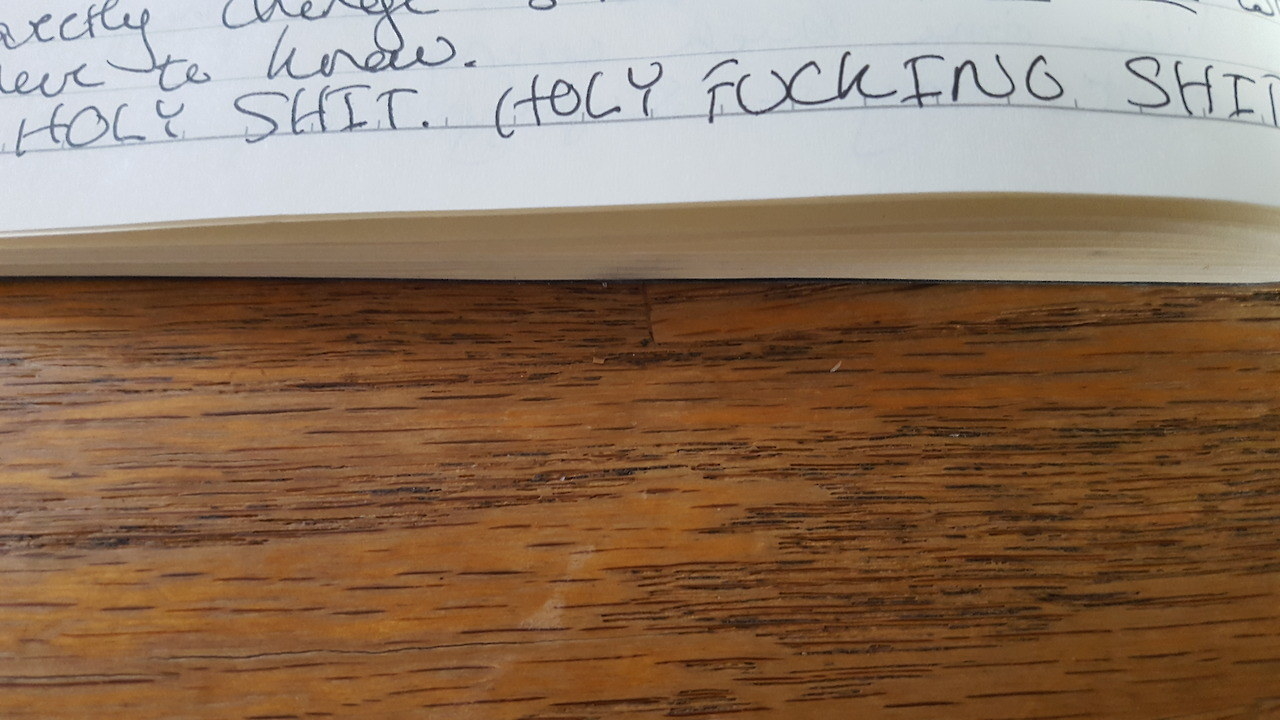
18. Ultimately, morning pages are a tool for self-improvement — they tell us exactly where we are, where we want to be, and how to best get there.
Tryna stick to a morning pages routine every day is made a lot harder when they insist on making u cry and snot everywhere ffs pack it in.
Here are a few more solid quotes from Cameron:
• “Morning pages lead us forward by small steps. They convince us of our talent in tiny increments."
• “Use your pages to record precisely where you are.”
• “The pages are simple yet profound. We discover an inner voice that speaks to us with greater and greater clarity.”
• “We are urged to take small actions, and as we do, we feel a sense of grace.”
19. Morning pages are only one of the tools in The Artist’s Way.
